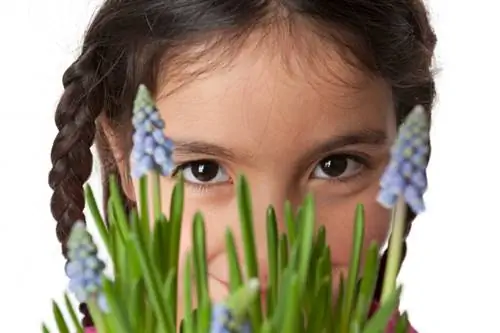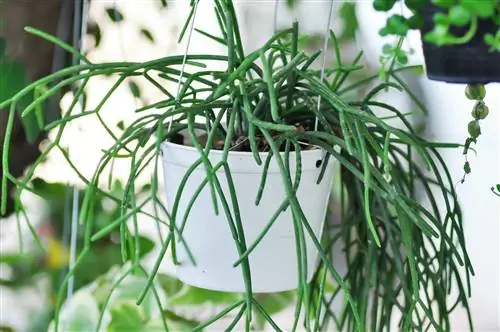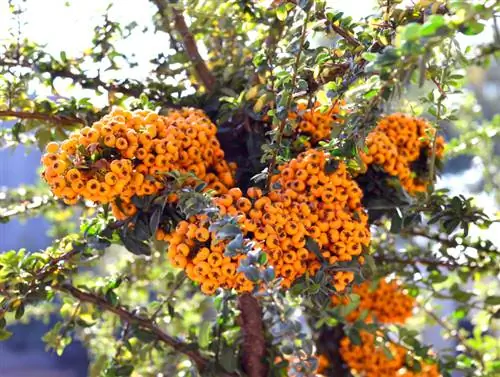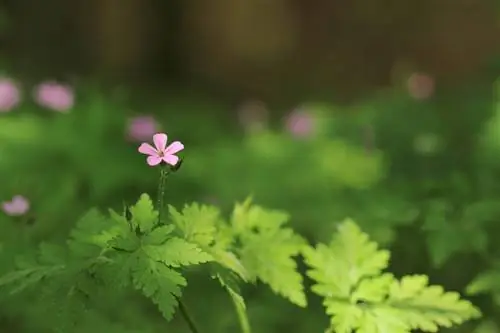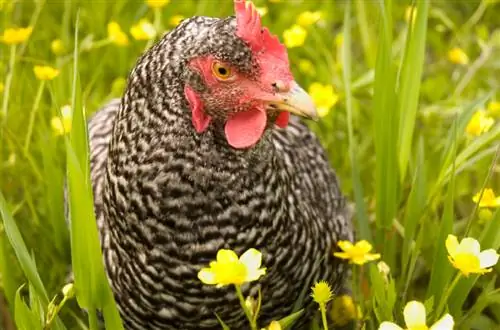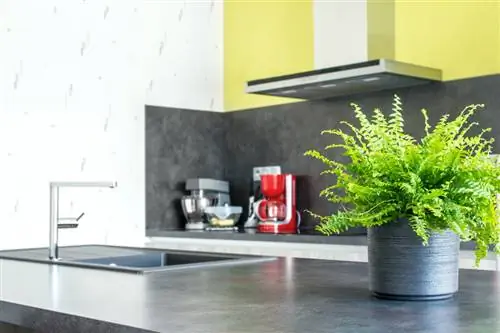- Author admin leonars@hobbygardeners.com.
- Public 2023-12-16 16:46.
- Last modified 2025-01-23 11:20.
There are numerous poisonous specimens among the spring bloomers. So does the grape hyacinth? Is this bulbous plant, also known as pearl hyacinth, poisonous or harmless?
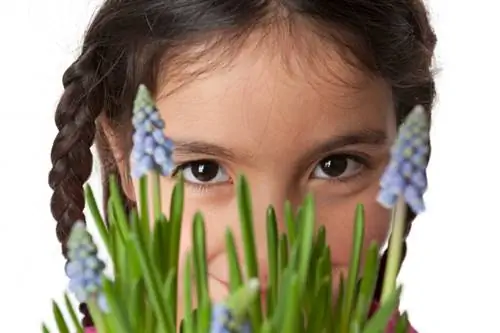
Is grape hyacinth poisonous?
Grape hyacinth is slightly toxic to humans and can cause skin irritation. Larger amounts can cause vomiting, stomach pain and shortness of breath. However, it is highly toxic to pets, especially cats, and poisoning should receive immediate veterinary treatment.
Slight danger to humans
Grape hyacinths are not very dangerous to humans. They are considered slightly poisonous. But parents of small children should be careful. Small children like to put plants in their mouths and the beautiful flowers of grape hyacinths entice them.
Either you don't plant grape hyacinths at all or you never leave your children unsupervised near them. Normally, severe poisoning is unlikely as this perennial has an unappetizing taste and only larger quantities consumed lead to symptoms of poisoning.
Symptoms of poisoning
While contact with hands or other parts of the body can cause skin irritation (redness, itching) in sensitive people, consuming larger quantities has more serious consequences such as vomiting, stomach pain, cramps and shortness of breath. Toxic saponins and oxalatraphides are responsible.
Pets are at risk
While people are generally less at risk, the danger to pets such as cats is much greater. Especially young animals that are inexperienced like to nibble on foreign plants. No matter whether the flowers, leaves, seeds or bulbs - all parts are poisonous.
Grape hyacinth is highly toxic for cats. The avoidance strategy (not planting at all) is the best. Otherwise, if poisoning occurs, you should consult a veterinarian immediately. Poisoning of the animal can be noticed by the following symptoms:
- Tumbling
- Lethargy
- Diarrhea
- Trembling
- Bleeding from orifices
Tips & Tricks
To avoid skin irritation, you should wear gloves as a precaution when handling grape hyacinths, for example when cutting and planting. You can relieve skin irritation by washing and cooling the affected areas.

